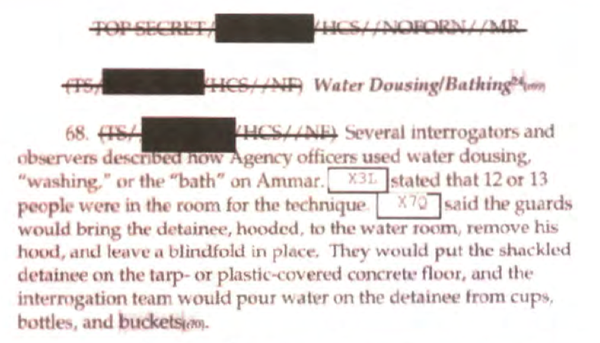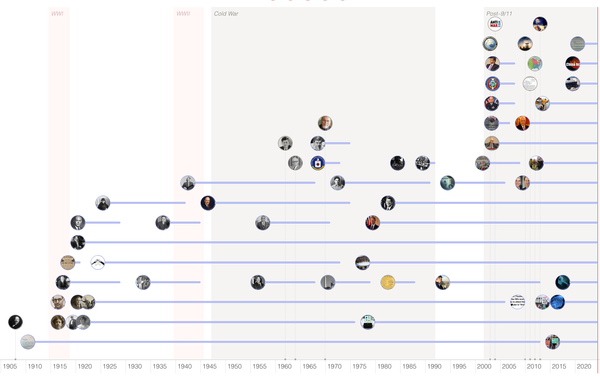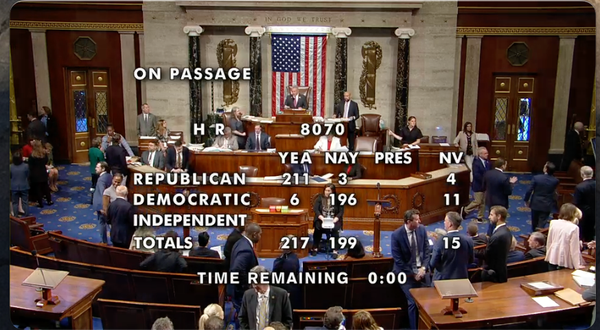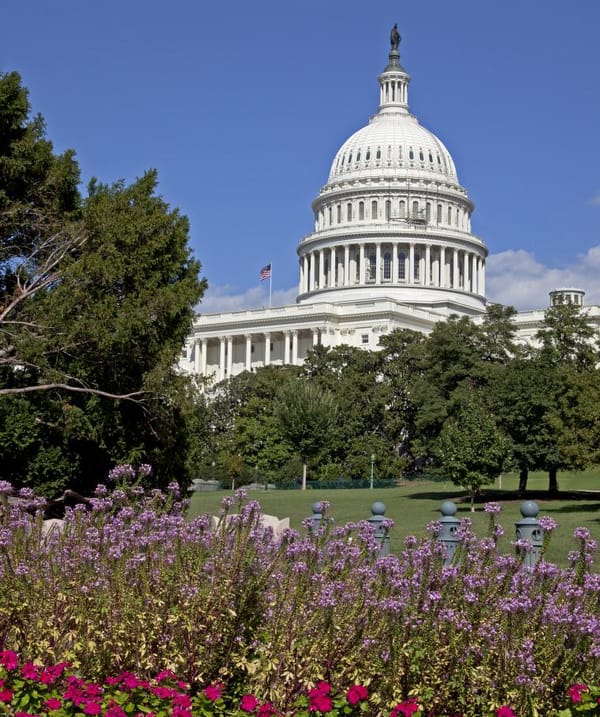Civil War 2.0: A Reality Check
Contrary to a lot of overheated rhetoric, a second mass lethal schism between Americans is not inevitable

Since Donald Trump's attempted coup between November 4, 2020 and January 6, 2021, there's been a lot of loose and generally not terribly well-informed commentary about the possibility or even inevitability of a second Civil War (see here, here, and here for examples). On April 26 (which happens to be the anniversary of the day Union forces cornered and killed Lincoln assassin John Wilkes Booth), we'll get Hollywood's take on what an American Civil War 2.0 could look like (the scenario presented in the trailer seems well beyond far-fetched).
There's no question that the number of threats of or actual violence against public officials or their family members--especially members of Congress and judges--has increased significantly over the past year, fueled in no small measure by former President Trump's own rhetoric attacking the judges and prosecutors involved in his multiple court cases. But in the wake of a Trump-Biden presidential election rematch (which at the moment appears inevitable), what are the actual chances of a full-on, country-wide unraveling into organized violence like we endured between April 1861 and April 1865? This is the first installment in a multi-part series designed to try to answer that question.
Drawing on my background as a former CIA military analyst, a prior combat arms officer (Armor Branch) in the U.S. Army, and over 20 years in politics (including over 10 years as a House senior staffer), I'll offer data and analysis to provide my best estimate of the chances of a hypothetical shooting war between Americans turning into a real one.
I’ll note at the outset that exercises like this are inherently fraught. The variables are many, and in some cases hard data on some of the most important questions are scant or nonexistent in the public domain. The intangibles are outright wildcards. Even so, I’ve concluded it’s possible to draw some meaningful conclusions from the history, data, and trends that are available. And given the stakes that this election may indeed be the most consequential one since 1860, I think an examination of the potential—or lack thereof—for a violent national unraveling is amply warranted, despite the uncertainties and unknowns.
This week, I begin with a look at how key American governmental institutions responded to Trump's attempted coup leading up to and on January 6, 2021.
Trump's Failed Putsch
In the wake of his 2020 election loss to Joe Biden, Trump's attempts to remain in power involved both legal (i.e., court challenges alleging election fraud) and illegal (pushing bogus/fraudulent elector slates, inciting a mob to storm the Capitol) methods. In each case, key governmental institutions of the Republic held, though the Congress was and remains politically fractured over events on January 6, 2021, and their aftermath:
- The federal courts: Trump's 61 legal challenges claiming election fraud were heard, and in 60 of 61 cases, denied for lack of credible evidence. No election fraud remotely sufficient to alter the outcome was ever uncovered. Federal courts did their job fairly and expeditiously.
- The federal bureaucracy: As the House January 6 Select Committee found, senior Department of Justice (DoJ) leaders refused to go along with Trump's plan to install then-Assistant Attorney General Jeffrey Clark as former Attorney General Bill Barr's replacement. Instead, they threatened to resign en masse if Trump persisted with his plan to have Clark installed as AG and then declare the 2020 election results in several key states in doubt, thus creating a constitutional crisis. Even Trump's acting heads of the Departments of Defense and Homeland Security did not come to his aid in the days leading up the attack on the Capitol, though they also did not respond nearly quickly enough to calls for assistance from D.C. Mayor Muriel Bowser or Congressional leaders to clear the Capitol of insurrectionists. Overall, however, the key agencies and departments of the executive branch remained loyal to the Republic. There were no pro-Trump mutinies or mass desertions in the armed forces or among federal law enforcement, though a small but critical number of current or former military and law enforcement personnel did participate in the attack on the Capitol.
- The Congress: If there was an institution that failed execrably in the immediate aftermath of the attack, it was the Congress, and particularly the GOP conference and its senior leadership. Rather than closing ranks with their Democratic colleagues to immediately impeach Trump for inciting the mob to attack the Capitol, almost 150 House and Senate GOP members gave Trump what he wanted and voted not to certify the results of the 2020 election. Biden's election was upheld by majorities in each chamber, but the election legitimacy denialism fueled by Trump and supported by so many House & Senate GOP members has helped sustain Trump's falsehoods and his support among his political base, and thus over the GOP as a whole, to this day.
- The public: While 74,223,369 Americans voted for Trump, only about 3000 appear to have participated in the breach of the Capitol (based on those arrested, pled out, convicted, or still being sought), which works out to 0.00404185372% of Trump voters and just 0.00091047041% of the U.S. population as a whole. The attempted insurrection was unprecedented, treasonous, terrifying for those on the receiving end of mob violence and threats, and fatal for some (either at the time or later)--but it was also an isolated event. There was no attempt by Trump supporters to raid National Guard or Reserve facilities for weapons, explosives, etc. in support of a general uprising. Despite the high level of political polarization and endless trash-talk on social media and cable network channels, there was no broad-based, country-wide uprising against the federal government by Trump supporters.
Past as Prologue?
In 2020, most of our key institutions held firm against Trump's botched attempt to overthrow the Republic through political and localized insurrectionist means. The question now is this: will those same institutions hold in 2024 if Trump loses to Biden or if Trump wins back the presidency and tries to turn the coercive power of the federal government against his political opponents?
Recently, Protect Democracy released a report containing recommendations for trying to 1) avert a second Trump presidency, and failing that, 2) actions that would theoretically strengthen existing institutions against Trump’s efforts to weaponize them. The report is worth reading and the authors are most definitely well intentioned, publicly spirited people. But I believe they misunderstand the nature and true sources of political power, and above all Trump’s willingness—if not eagerness—to use the coercive power of the state to crush his political opponents.
What if Trump wins the election and carries out his threats to purge thousands of federal employees from the very federal agencies and departments that refused to go along with his first attempted coup? Will new Trump loyalists he installs there open groundless investigations of Trump’s political opponents? Will they engage in extrajudicial arrests and detentions of those opposed to Trump’s policies?
If Trump pardons all those convicted of January 6-related charges—the “hostages,” as he now calls these criminals—will those individuals go on to form the nucleus of new, militant, pro-Trump civil society auxiliaries capable of threatening Trump’s political opponents with impunity?
Even if Democrats manage to retain control of one or even both chambers of Congress as a result of the 2024 elections, what actual means will they have to stop any unconstitutional acts a reelected Trump might engage in?
In future pieces, I’ll examine these and other questions.
Next week, I'll lay the ground work for the rest of this series by looking at some key differences between America in 1861 and today to help illustrate the complexities and uncertainties in assessing the possibility and likely outcome of a nationwide violent confrontation between Trump supporters and his opponents. In the following weeks, I'll examine in turn two potential scenarios for violent conflict. Given that these pieces are being written in real time as some key events are unfolding, my conflict assessment will also be subject to revision based on the course of events.
Thanks for reading. If you're finding The Republic Sentinel informative, please share with your friends, and consider pledging your financial support for this work as well.




